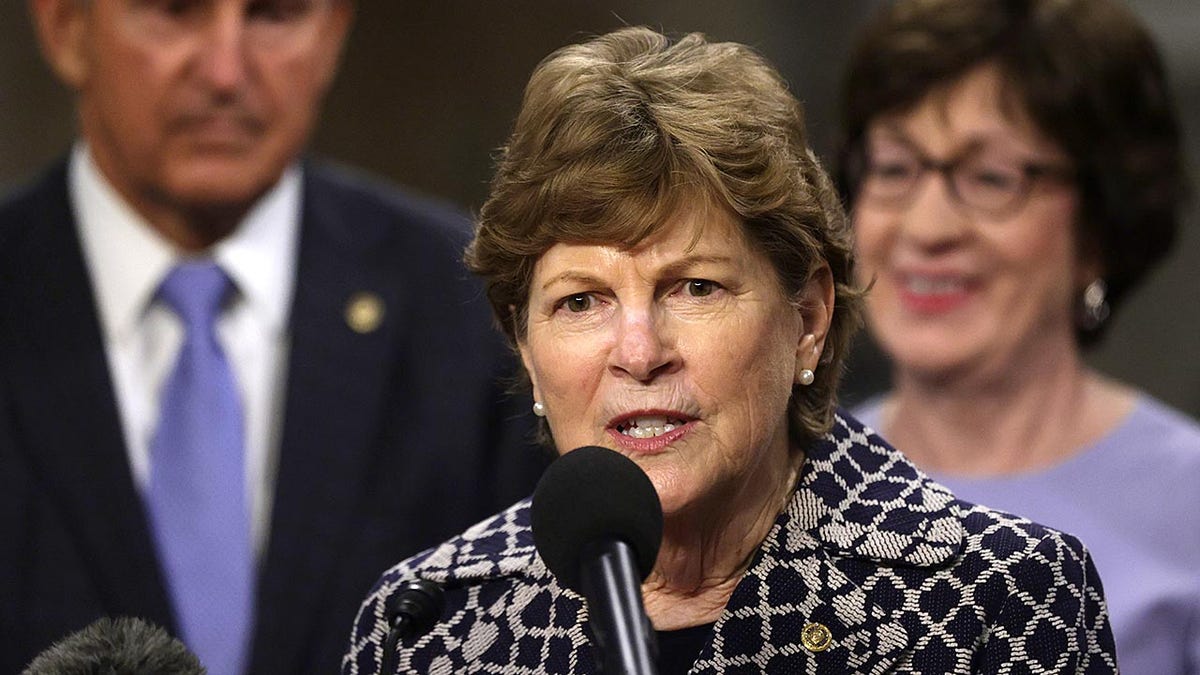Supreme Court to hear Mississippi abortion case
Judicial Crisis Network president Carrie Severino and pro-life activist Alison Howard Centofante discussed the case and what it could mean for Roe v. Wade.
Sen. Jeanne Shaheen, D-N.H., issued a warning to the Supreme Court days before oral arguments in a potential landmark abortion case, claiming that a "revolution" will take place if the high court overturns existing precedent.
During a virtual event Monday featuring New Hampshire's entire House and Senate delegation, WMUR reporter Adam Sexton had asked if public debate over abortion had "muted" due to many people in the U.S. only knowing life post-Roe v. Wade. Shaheen asserted that nothing would be muted about the reaction to a possible overturning of that decision.
WILL THE SUPREME COURT OVERTURN ROE V. WADE? POSSIBLE OUTCOMES FOR THE UPCOMING ABORTION CASE
"I hope the Supreme Court is listening to the people of the United States because – to go back to Adam Sexton’s question – I think if you want to see a revolution go ahead, outlaw Roe v. Wade and see what the response is of the public, particularly young people," Shaheen said toward the end of the event. "Because I think that will not be acceptable to young women or young men."
The Supreme Court's current makeup – a 6-3 majority of justices appointed by Republicans – has led to speculation that they might overturn Roe v. Wade, which recognized a right to get an abortion before a fetus is viable, generally about 23 or 24 weeks into pregnancy. Wednesday's case, Dobbs v. Jackson Women's Health, centers on a Mississippi law that clearly challenges Roe by banning abortion after 15 weeks.
SUPREME COURT TO HEAR MISSISSIPPI ABORTION CASE THAT COULD OVERTURN ROE V. WADE: LIVE UPDATES
"I’ve lived the consequences of the pre-Roe era – I had friends in college who were forced to seek dangerous back alley abortions because women across the country were denied access to critical family planning services. We cannot allow Republican lawmakers to turn back the clock on women’s reproductive health and rights, which is precisely what the Mississippi case seeks to do. It is time to sound the alarm," Shaheen said in a separate statement. "Roe v. Wade isn’t just a decision that impacts women, their health and their financial security – it also impacts generations of families."
Shaheen's warning was reminiscent of a comment made by Senate Majority Leader Chuck Schumer during an abortion rights rally in June 2020. Speaking as the court heard arguments in a different case dealing with restrictions on who can provide abortions, Schumer gave a warning to conservative justices that bordered on threatening.
NEW AD FEATURE ABORTION SURVIVOR AS SUPREME COURT HEADS TOWARD ORAL ARGUMENT IN DOBBS

Sen. Jeanne Shaheen speaks as Sen. Joe Manchin and Sen. Susan Collins listen during a news conference after a procedural vote for the bipartisan infrastructure framework at Dirksen Senate Office Building July 28, 2021 on Capitol Hill in Washington, D.C. (Alex Wong/Getty Images)
"I want to tell you, Gorsuch. I want to tell you, Kavanaugh. You have released the whirlwind and you will pay the price!" Schumer yelled. "You won’t know what hit you if you go forward with these awful decisions."
Those remarks prompted Chief Justice John Roberts to rebuke the Democratic leader later that day.
CLICK HERE TO GET THE FOX NEWS APP
"Justices know that criticism comes with the territory, but threatening statements of this sort from the highest levels of government are not only inappropriate, they are dangerous," Roberts said in a statement. "All Members of the Court will continue to do their job, without fear or favor, from whatever quarter."

A police officer maintains a watch during a demonstration by victims of gun violence in front of the Supreme Court as arguments begin in a major case on gun rights on Nov. 3, 2021 in Washington, D.C. (Joshua Roberts/Getty Images)
Shaheen's colleague, Sen. Maggie Hassan, D-N.H., also appeared at the event. She called the Mississippi law "a direct attack on decades of precedent," and said "the Supreme Court should not put government in front of women's most personal, difficult, and complicated health care decisions."














































